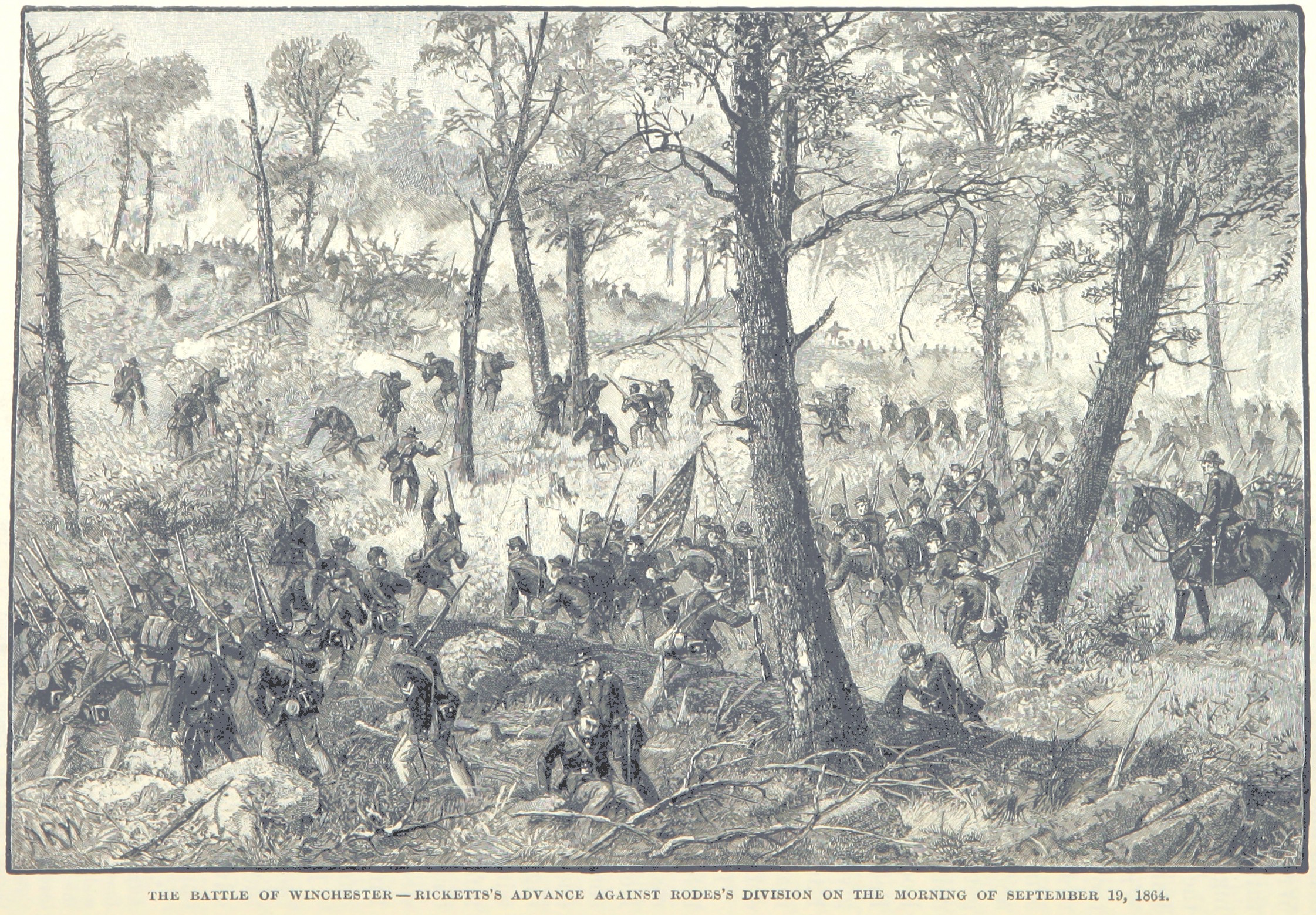
In September 1864, Union troops were fighting throughout the Confederate south with General Phillip H. Sheridan winning a number of key battles. On September 19th, 1864, Sheridan’s troops went toe-to-toe with Confederate General Jubal Early at The Third Battle of Winchester.
We turn to the Civil War Trust a brief description of the battle,
To clear the Shenandoah River valley of Confederates, Maj. Gen. Phil Sheridan moved on Winchester in mid-September 1864. Sheridan’s force of over 39,000 men was more than twice the size of Maj. Gen. Jubal Early’s Confederate army defending the valley. After Brig. Gen. Joseph Kershaw’s division left Winchester to rejoin Robert E. Lee’s army at Petersburg, Early renewed his raids on the Baltimore and Ohio Railroad at Martinsburg in the lower valley, dispersing his four remaining infantry divisions. On September 19th, Sheridan advanced toward Winchester along the Berryville Pike with Maj. Gen. Horatio Wright’s Sixth Corps and Brig. Gen. William Emory’s Nineteenth Corps, crossing Opequon Creek east of town. The Union advance was delayed long enough for Early to concentrate his forces to meet the main assault, which continued for several hours. Casualties were very heavy. The Confederate veteran divisions fought hard but their line was gradually driven back toward the town, anchored around the defensive works at Fort Collier. By mid-afternoon, Brig. Gen. George Crook’s Eighth Corps and two Union cavalry divisions under Brig. Gen. Alfred Torbert turned the Confederate left flank. Early ordered a general retreat. Confederate generals Robert Rodes and Archibald Goodwin were killed, and generals Fitzhugh Lee, William Terry and William Wharton were wounded. Union Brig. Gen. David Russell was killed, and generals John McIntosh, Emory Upton, and George Chapman were wounded. Because of its size, intensity, and result, many historians consider this the most important conflict of the Shenandoah Valley.
News of the victory quickly spread through the Union ranks. In a diary entry on the day of the battle, Pompey native and 2nd Lieutenant Edward F. Hopkins of Company E. 149th Regiment New York State Volunteers takes in the news:
“Great victory by Gen Sheridan. Complete route of the enemy in the Shenandoah Valley. 3,000 prisoners taken and about the same number killed & wounded.”
In his 226th diary during the Civil War, Madison County native David W. Nelson of Company A 117th Regiment New York Volunteers reacts in an entry the following day:
“20 September, Tuesday: Inspection this morn. go up to Brig. Team Guard. We get good news from Sheridan who defeats & captures a large force in the Shenandoah Valley.”

